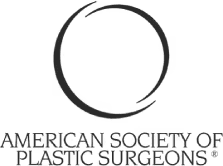FACE
Facial Reconstruction Surgery: Benefits, Recovery, And Side Effects

Facial reconstruction surgery is a transformative procedure that can help individuals restore facial aesthetics and function following trauma, illness, or congenital abnormalities. This complex surgical approach involves the reconstruction of facial structures to improve appearance, restore facial symmetry, and enhance overall quality of life. In this comprehensive blog post, we will explore the benefits, recovery process, potential side effects, and cost considerations associated with facial reconstruction surgery.
Understanding Facial Reconstruction Surgery
Facial reconstruction surgery is a specialized branch of plastic surgery that aims to restore form and function to the face. It can address a wide range of conditions, including facial trauma, facial deformities, birth defects, facial paralysis, and the effects of cancer surgery. The procedure involves a meticulous and individualized approach to reconstructing and reshaping facial features, such as the nose, ears, eyes, jaw, and forehead.
Benefits of Facial Reconstruction Surgery
- Enhanced Aesthetics: Facial reconstruction surgery can significantly improve facial aesthetics, enhancing facial harmony and symmetry. It can help individuals regain confidence and improve self-esteem.
- Restored Facial Function: In cases of facial trauma or congenital abnormalities, facial reconstruction surgery can restore normal function, such as breathing, speaking, chewing, and facial expressions.
- Improved Quality of Life: By addressing physical and functional limitations, facial reconstruction surgery can enhance overall quality of life. It can enable individuals to lead a more fulfilling and active lifestyle.
- Psychological Well-being: Restoring facial features can positively impact mental and emotional well-being. Facial reconstruction surgery can alleviate the psychological distress associated with facial deformities, improving self-image and overall mental health.
Recovery Process
The recovery process following facial reconstruction surgery can vary depending on the extent and complexity of the procedure. While each case is unique, here are some general aspects to consider:
- Hospital Stay: Depending on the complexity of the surgery, an overnight stay in the hospital may be required. This allows close monitoring of the initial healing process.
- Swelling and Bruising: Swelling and bruising are common after facial reconstruction surgery. Cold compresses, elevation of the head during sleep, and prescribed medications can help manage these symptoms.
- Dressings and Sutures: Dressings and sutures may be applied to the surgical site to protect and support the healing tissues. These will be removed during follow-up appointments as directed by the surgeon.
- Pain Management: Discomfort and pain can be managed with prescribed pain medications. It’s important to follow the surgeon’s instructions and take medications as prescribed.
- Restricted Activities: Physical activities, including strenuous exercises and heavy lifting, should be avoided during the initial stages of recovery. Follow your surgeon’s guidelines regarding when it is safe to resume regular activities.
- Follow-up Appointments: Regular follow-up appointments with your surgeon are essential to monitor healing progress, remove sutures, and address any concerns or questions you may have.
Potential Side-Effects and Risks
While facial reconstruction surgery is generally safe, it is important to be aware of potential side-effects and risks. These can include:
- Infection: Although uncommon, there is a risk of infection at the surgical site. Proper wound care and following post-operative instructions can minimize this risk.
- Scarring: Facial reconstruction surgery involves incisions, which will result in scars. However, the surgeon will make every effort to place incisions in discreet locations and provide scar management recommendations.
- Numbness or Sensory Changes: Temporary or permanent changes in sensation may occur in the surgical area.
Facial reconstructive surgery encompasses a range of procedures that can address various facial deformities, trauma, congenital conditions, and aesthetic concerns. While the specific procedures recommended will depend on individual needs and goals, here are ten commonly performed facial reconstructive surgeries:
- Rhinoplasty: Also known as a nose job, rhinoplasty can correct structural abnormalities, reshape the nose, and improve its function and appearance.
- Blepharoplasty: This procedure focuses on the eyelids, removing excess skin, fat, and muscle to rejuvenate the upper or lower eyelids and address concerns such as drooping or puffy eyes.
- Facelift: A facelift tightens and lifts sagging skin in the face and neck, reducing wrinkles and restoring a more youthful appearance. It can address jowls, deep creases, and loose skin.
- Brow Lift: A brow lift or forehead lift elevates the eyebrows and smoothes forehead wrinkles, providing a more refreshed and youthful look.
- Otoplasty: Otoplasty, or ear reshaping surgery, corrects prominent or misshapen ears by repositioning or reshaping the cartilage for a more balanced appearance.
- Facial Implants: Facial implants, such as chin or cheek implants, enhance facial contours and restore volume to areas that lack projection or definition.
- Orthognathic Surgery: Orthognathic surgery corrects severe jaw discrepancies, such as underbite or overbite, improving both function and facial aesthetics.
- Cleft Lip and Palate Repair: Cleft lip and palate repair is a specialized procedure that corrects congenital deformities, restoring normal structure and function to the lip and/or palate.
- Facial Reconstruction after Cancer Surgery: This type of reconstruction aims to restore form and function after surgical removal of facial skin cancer or tumors, often involving skin grafts, flap techniques, or reconstructive microsurgery.
- Scar Revision: Scar revision techniques are used to minimize the appearance of facial scars resulting from trauma, surgery, or previous procedures. These techniques may include dermabrasion, laser resurfacing, or surgical scar revision.
It’s important to note that the suitability of specific procedures will vary depending on individual circumstances. Consulting with a skilled and experienced plastic surgeon is crucial to determine the most appropriate facial reconstructive surgeries for your unique needs and goals.








